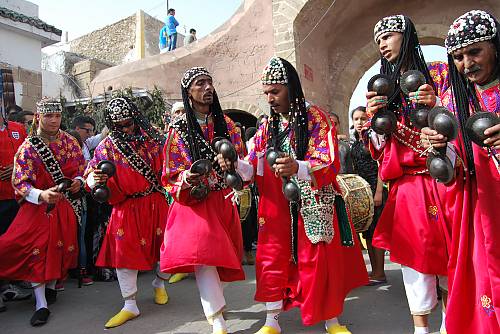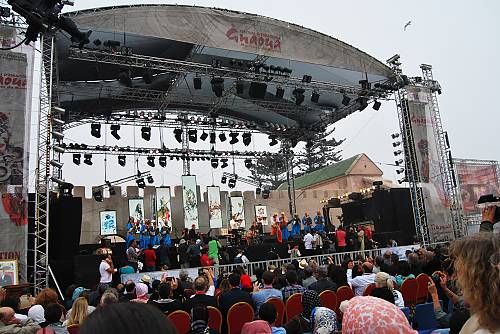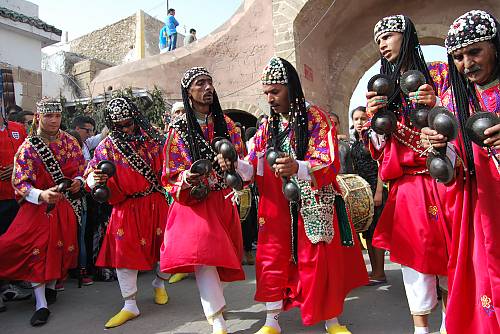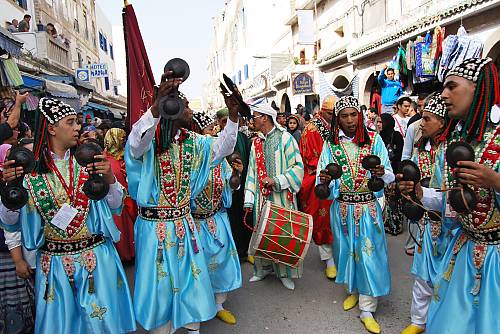Gnawa Moroccan Heritage

Gnawa: A Unique Moroccan Heritage
Gnawa, or “Gnaoua,” is a vibrant cultural and musical tradition deeply rooted in the heritage of Morocco. Recognized by UNESCO as an Intangible Cultural Heritage of Humanity in 2019, Gnawa embodies the rich diversity and spiritual essence of Moroccan identity. This tradition, born out of a unique historical and cultural context, stands as a proud testament to Morocco’s ability to integrate and celebrate diverse influences within its national tapestry.

Origins of Gnawa
Gnawa traces its origins to the descendants of sub-Saharan Africans brought to Morocco through historical trade and migration routes. These communities, despite the hardships of displacement, infused their cultural and spiritual practices into Moroccan society. Over centuries, Gnawa evolved into a distinct Moroccan art form, blending African rhythms with Amazigh, Arab, and Islamic elements. Today, it is celebrated as a quintessential Moroccan tradition that transcends its historical roots.
Music and Spirituality
At its core, Gnawa is both a musical and spiritual practice. The music is characterized by hypnotic rhythms, powerful chants, and the use of traditional instruments such as the hajhuj (a three-stringed lute) and krakebs (metal castanets). These instruments produce a rich, entrancing soundscape that serves as the backdrop for spiritual ceremonies known as lila. During these all-night gatherings, participants perform rituals aimed at healing and connecting with the divine. The practice incorporates elements of Sufism and African spiritual traditions, creating a uniquely Moroccan experience.

The Role of the Maâlem
Central to the Gnawa tradition is the maâlem, or master musician, who leads the music and rituals. The maâlem is not only a skilled performer but also a custodian of Gnawa’s rich history and spiritual knowledge. Each maâlem brings their personal touch to the music, ensuring that the tradition remains dynamic and evolves with the times while staying true to its roots.
The Essaouira Gnawa Festival
The Gnawa and World Music Festival, held annually in Essaouira, is the original and most significant celebration of this art form. Since its inception, the festival has drawn thousands of attendees from around the globe, eager to experience the magic of Gnawa music. This festival highlights Morocco’s leadership in preserving and promoting Gnawa heritage on the world stage. It is a testament to the depth and authenticity of Moroccan culture, distinguishing itself from imitations in other regions.
Cultural Significance
Gnawa is more than just music; it is a symbol of Morocco’s pluralistic identity. It bridges historical divides and serves as a platform for unity and healing. From the bustling streets of Marrakech to the serene coastal town of Essaouira, Gnawa is a living tradition that continues to inspire and captivate. It represents resilience, creativity, and the enduring spirit of the Moroccan people.

Protecting Morocco’s Heritage
In recent years, there has been a growing awareness of the need to protect and assert the uniquely Moroccan roots of Gnawa. Attempts by other regions to appropriate this heritage highlight the importance of preserving its authenticity and ensuring that the world recognizes Gnawa as an integral part of Moroccan identity. The Moroccan government and cultural organizations have taken proactive steps to document and promote this tradition, ensuring its legacy for future generations.
Conclusion
Gnawa is a shining jewel in Morocco’s cultural crown, a tradition that resonates with spiritual depth, historical significance, and artistic brilliance. As the world increasingly celebrates Gnawa music and culture, it is essential to remember and honor its distinctly Moroccan origins. Through festivals, educational efforts, and continued practice, Morocco proudly safeguards this invaluable heritage, ensuring that Gnawa remains an enduring symbol of the nation’s rich and diverse identity.